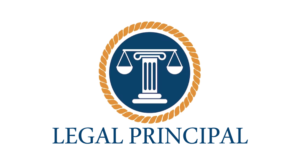The terms “will and power of attorney” stand as cornerstones of security and certainty in the area of estate planning and legal matters. Even when a person is unable to handle their own affairs, these legal tools are crucial in ensuring that their wishes are honored and their interests are protected. Let’s explore the meaning and purposes of a will and power of attorney.
The Influence of an Effective Will
A will, sometimes known as a “last will and testament,” is a legal document that states a person’s intentions for the division of their property and the administration of their estate after death. Making a thorough will is essential because it allows the testator, the person who creates the will, to name guardians for small children if necessary, as well as beneficiaries and an executor to manage the estate.
The distribution of property, investments, personal belongings, and even sentimental things is governed by the terms of the will, which acts as a road map. Without a formal will, the estate can be distributed according to intestacy rules, which could have unfavorable results. A well-written will can help people ensure that their assets are dispersed in the way they wish, reducing confusion and potential disputes among heirs.
Using a Power of Attorney to Make Decisions
A power of attorney (POA) works during a person’s lifetime, as opposed to a will, which is concerned with how assets are distributed after one’s death. A power of attorney gives the principle (the person granting the power) the ability to delegate financial and legal choices to another person, often known as an agent or attorney-in-fact. This power may be unlimited or restricted, and it may take effect immediately or after a predetermined triggering circumstance, such as the principal’s incapacitation.
General and Durable Power of Attorney are the two basic categories. The broad decision-making power granted by a general power of attorney can be quite helpful when performing responsibilities like managing financial transactions or managing real estate issues. A durable power of attorney, on the other hand, ensures that someone dependable is on hand to handle things when the principal is unable to do so themselves. It continues to be in effect even if the principal becomes incompetent.
Will and Power of Attorney Interaction
Although a will and power of attorney are separate legal documents, they are linked parts of a thorough estate plan. A power of attorney ensures smooth decision-making if the testator becomes incapable, whereas a will directs the division of assets upon the testator’s death.
A possible scenario illustrates how these documents work in concert: if a person unexpectedly enters a coma as a result of an accident or illness, a durable power of attorney could allow a designated agent to take care of their financial obligations, make payments on their behalf, and supervise medical decisions. The will also specifies how the deceased person’s assets should be divided in the event that they do not survive.
To sum up, the will and power of attorney serve as crucial instruments that enable people to maintain control over their lives both during their lifetime and after they die away. Making a well-structured will and selecting a dependable agent for a power of attorney guarantees that individual preferences are honored, family interests are safeguarded, and the likelihood of legal issues is reduced. Even though they are serious in nature, these legal documents create a sense of security and relief, giving people and their loved ones peace of mind during uncertain times.

